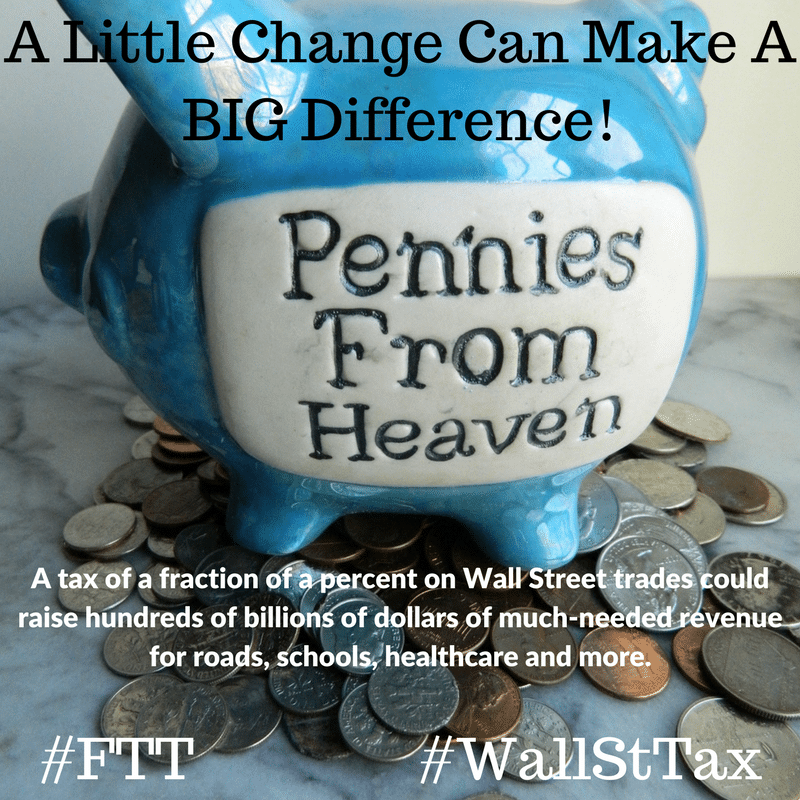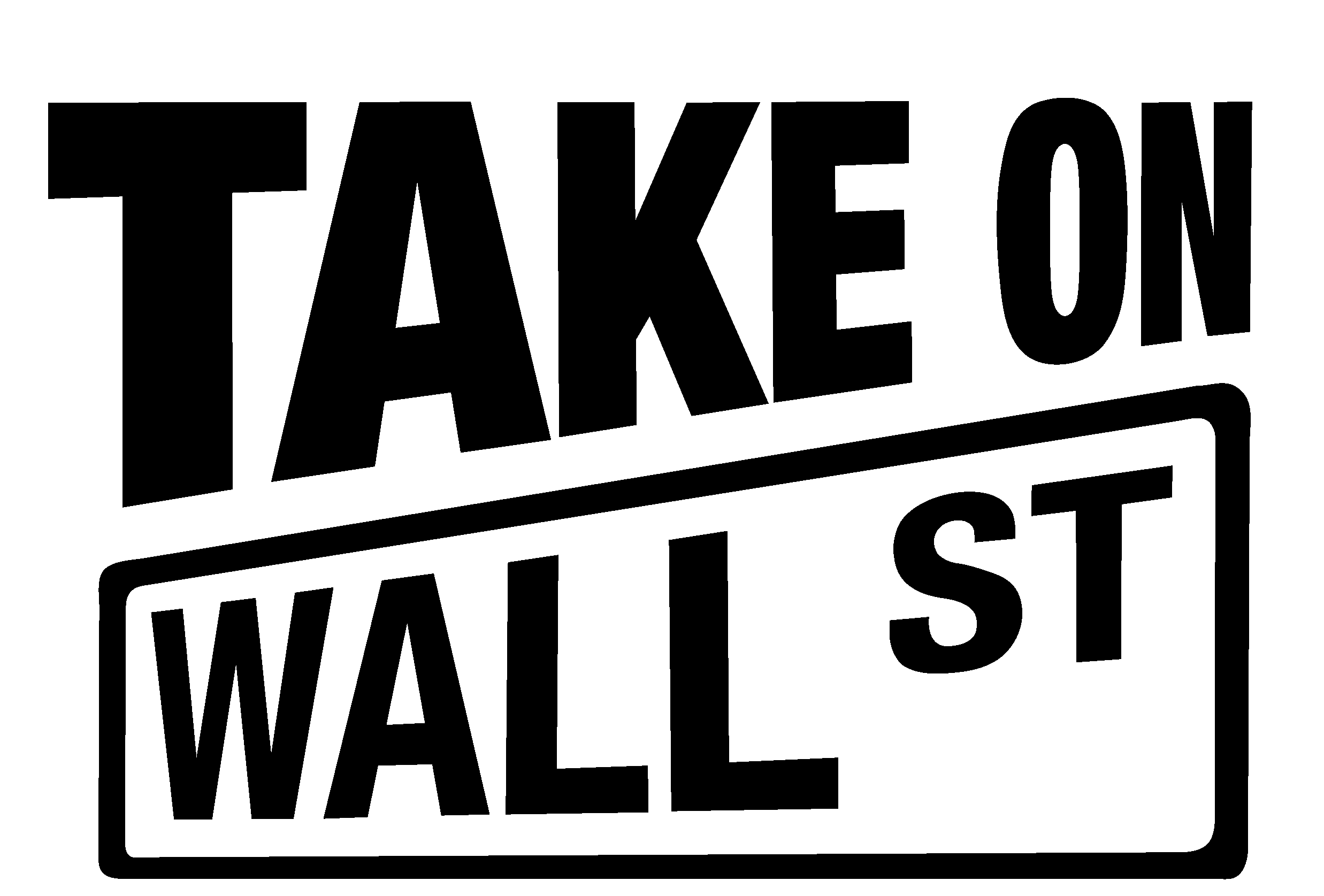Wall Street Sales Tax

A Wall Street Sales Tax is a step toward a fairer tax code. Ordinary people pay sales taxes on all manner of goods and services, yet no such taxes apply to Wall Street actors when they buy and sell financial securities. A Wall Street Sales Tax — also known as a financial transaction tax, speculation tax, or Robin Hood tax — is a small fee of a few cents per $100 that would be imposed on transactions in stocks, bonds, or derivatives. If legislation establishing such a tax were passed, the cost would fall overwhelmingly on Wall Street firms and high-frequency traders who hold financial instruments for mere minutes, seconds or even milliseconds, as opposed to long-term investors.
Such a tax would help reorient Wall Street’s focus toward long-term investments that support Main Street businesses, make Wall Street pay more of its fair share of taxes, and raise hundreds of billions of dollars in revenue over the next decade that could be used to protect and enhance retirement programs and invest in working family priorities like education, health care, child care, housing, environmental protection and rebuilding infrastructure. Taxing Wall Street trades would help address rising economic inequality and reduce financial sector risk and volatility, while raising revenue that could be used for critical public services and investments.
Bills
The bill taxes Wall Street trades to discourage short-term bets that destabilize markets and generate billions in new revenue for services our communities need.
Tax on Wall Street Speculation Act (H.R.2735/ S.1283)
Wall Street Tax Act (H.R.328/S.817)
![]() Factsheet: Wall Street Sales Tax
Factsheet: Wall Street Sales Tax
Learn More
- “Here’s One Tax Every Candidate Ought to Back: A tiny tax on financial transactions could raise big money for health care, education and infrastructure without impeding the efficient allocation of capital.” by Antonio Weiss, Bloomberg, February 14, 2020.
- “The Case for a Financial Transaction Tax: Governments charge user fees for parks, roads and other infrastructure. Why not do the same for the financial system?” by Michael Edesess, Bloomberg, June 20, 2019.
- “Wow, a financial transaction tax is an amazingly good idea,” by Hamilton Nolan, Splinter, December 14, 2018.
- “CBO’s big ideas for shrinking the deficit,” by Caitlin Emma, Politico, December 13, 2018.
- “A Financial Transaction Tax Would Help Ensure Wall Street Works for Main Street”, by Josh Bivens and Hunter Blair, Economic Policy Institute, July 28, 2016.
- “Don’t Believe Wall Street’s Scare Stories about a Financial Transactions Tax”, by
Dean Baker, The Los Angeles Times, July 25, 2016. - “How Wall Street Reform Could Give Low-Income Families a Big Boost”, By Sarah Anderson, Marc Bayard, John Cavanagh, Chuck Collins, Josh Hoxie and Sam Pizzigati, The Nation, February 18, 2016.
- “Facts and Myths About the Financial Transaction Tax”, by Center for Economic and Policy Research, February, 2016.
- “Why Critics Are Wrong about a Financial-Transaction Tax,” by Stephany Griffith-Jones and Avinash Persaud, Politico, May 19, 2014.
- “Raising Revenue: A Review of Financial Transaction Taxes throughout the World”, by Daiana Beitler, Health Poverty Action and Stamp Out Poverty, September 2010.
- “Everything You Need to Know About High-Frequency Trading”, by Matthew O’Brien, The Atlantic, April 11, 2014.
- “High-frequency trading is a blight on markets that the Tobin tax can cure”, by John Fullerton, The Guardian, April 4, 2014.
- “The Relationship Between Financial Transaction Taxes and Economic Growth”, by Center for Economic and Policy Research, 2012.
- “Tax Wall St. to create jobs on Main St.”, by Leo Hindery, CNN, January 27, 2010.
- “Financial transaction taxes offer stability to the market”, by Avinash Persaud, Financial Times, May 17, 2017.
